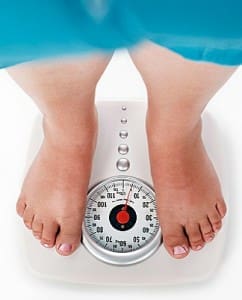
Answer: Most overweight mothers and their babies experience a safe pregnancy and delivery. It’s important though to be aware of the complications that extra weight could lead to, and what you can do about it. There will be an increased risk of gestational diabetes and high blood pressure. Also, coming up with an accurate due date may be more difficult, because ovulation in overweight women is usually more unpredictable. If the fetus is larger than average, there may be some delivery difficulties. Finally, if it’s necessary to deliver via cesarean, an overweight abdomen can complicate the surgery and recovery.
The good news though is that with superior medical and self-care, you can greatly reduce the risks to yourself and your baby. You’ll probably have more medical tests than the typical pregnant woman, including an early ultrasound, glucose tolerance test, screening for gestational diabetes, and non-stress and other tests to find out more about your baby’s condition.
There’s lots you can do for yourself and your baby too: eliminate all pregnancy risks that are within your control, such as smoking and drinking. It’s also advised that you avoid gaining too much excess weight during your pregnancy. Your doctor may recommend that you gain less than the typical 25 to 35 pounds without putting your baby’s birth weight or health at risk. Your daily diet should contain about 1,800 calories of nutritious foods that have plenty of vitamins, minerals, and protein. Being efficient with your food choices will help you and your baby get the most nutritious value possible out of the foods you eat. You should also make sure to take a prenatal vitamin containing folic acid. Getting regular exercise (within your doctor’s recommended guidelines) will help keep your weight gain in check so you don’t have to cut down on what you eat too much.
